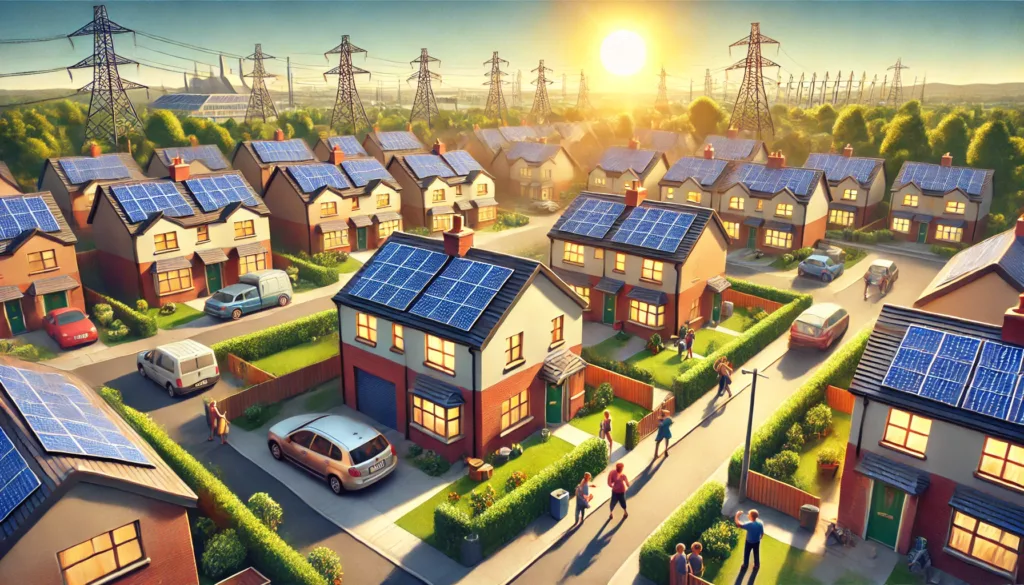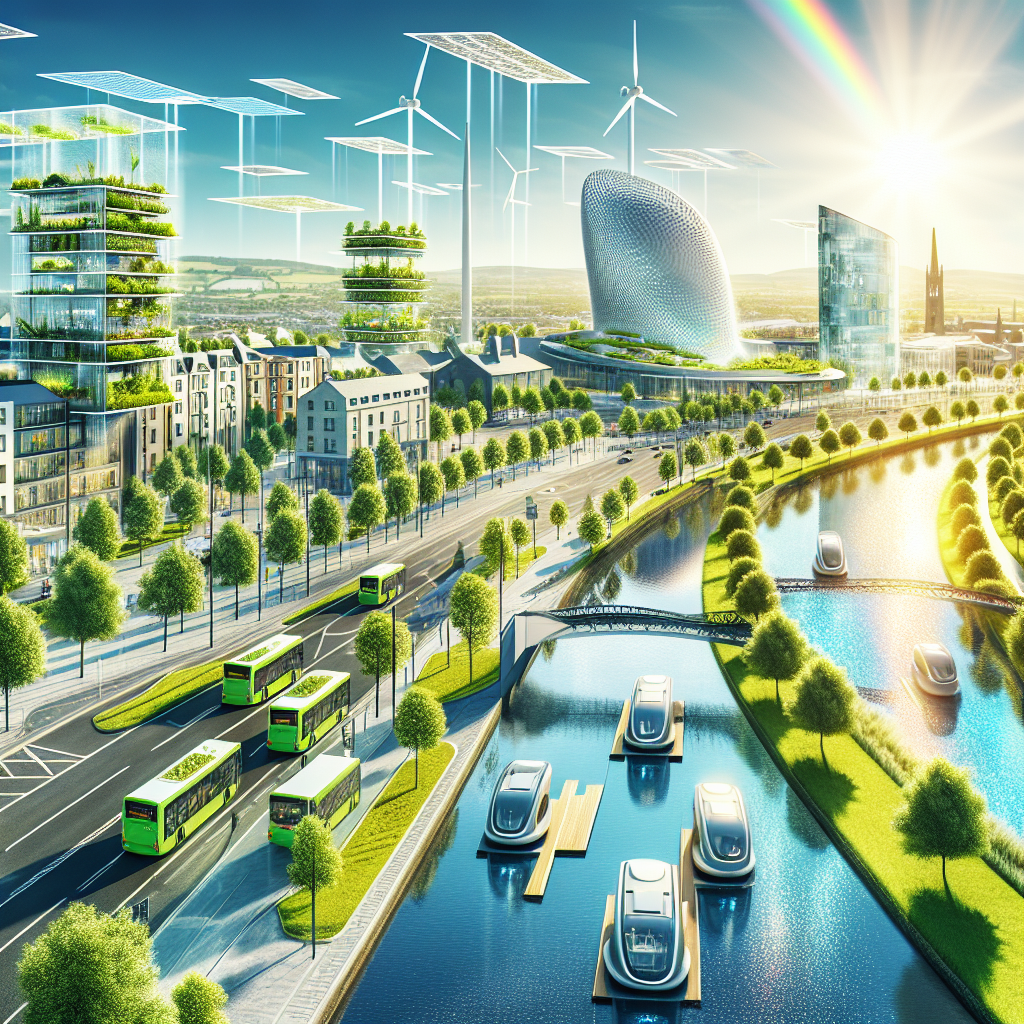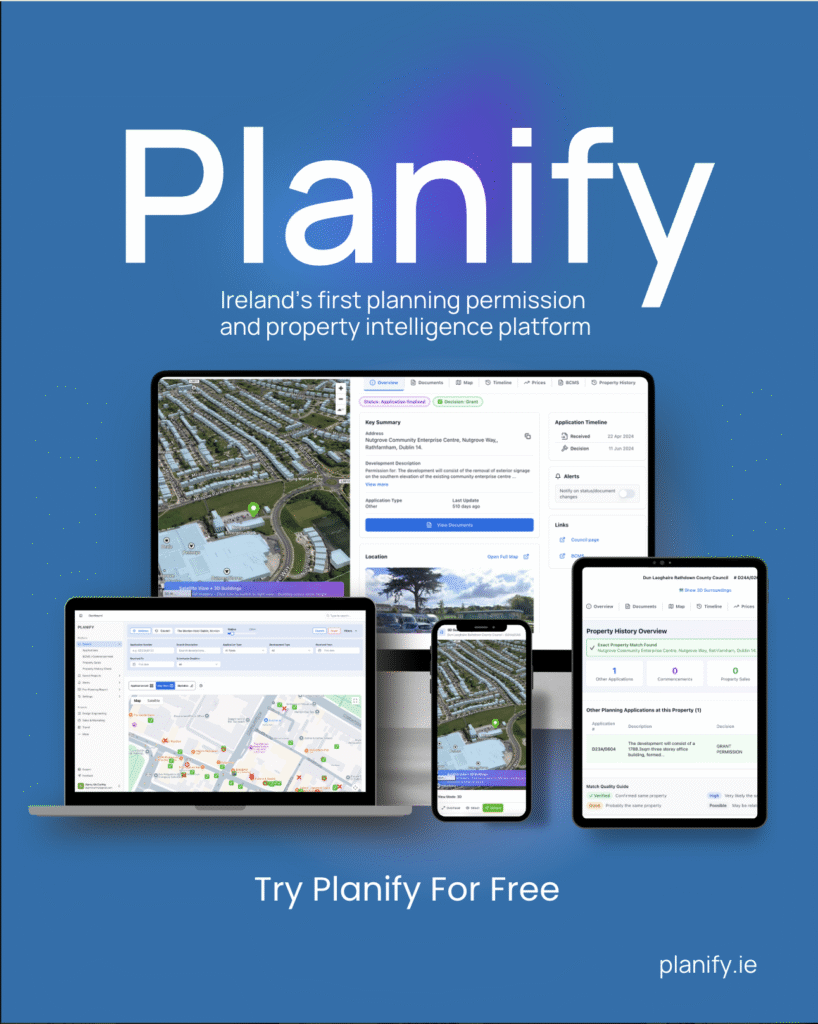Ireland has reached a significant milestone in its renewable energy journey by connecting 100,000 solar panels to the national grid. This achievement marks a pivotal moment in the country’s efforts to transition to sustainable energy sources and reduce its carbon footprint.
The initiative, often referred to as the “rooftop revolution,” has seen a surge in the installation of solar panels on residential, commercial, and industrial properties across Ireland. This widespread adoption of solar energy is part of a broader government strategy to enhance the country’s renewable energy capacity and meet its climate targets.
The rapid increase in solar panel installations has been driven by a combination of government incentives, falling costs of solar technology, and a growing public awareness of the benefits of renewable energy. Homeowners and businesses alike are increasingly recognising the long-term financial and environmental advantages of investing in solar power.
Government Support and Incentives
The Irish government has played a crucial role in promoting the adoption of solar energy through various support schemes and incentives. The introduction of grants and subsidies has made it more affordable for individuals and businesses to install solar panels. Additionally, the government has implemented policies to streamline the planning permission process for solar panel installations, making it easier for property owners to go green.
One of the key programs driving this growth is the Sustainable Energy Authority of Ireland’s (SEAI) Solar PV Scheme, which provides financial assistance to homeowners for the installation of solar photovoltaic (PV) panels. This scheme has been instrumental in reducing the upfront costs associated with solar installations, thereby encouraging more people to make the switch to renewable energy.
Economic and Environmental Benefits
The widespread adoption of solar panels in Ireland is not only beneficial for the environment but also for the economy. By harnessing solar energy, Ireland can reduce its reliance on fossil fuels, thereby decreasing greenhouse gas emissions and contributing to global efforts to combat climate change.
Moreover, the growth of the solar industry has created new job opportunities and stimulated economic activity. From manufacturing and installation to maintenance and support services, the solar sector is employing thousands of people across the country. This, in turn, is boosting local economies and fostering sustainable development.
Challenges and Future Prospects
Despite the impressive progress, there are still challenges to be addressed in the further expansion of solar energy in Ireland. One of the main obstacles is the intermittency of solar power, which requires the development of efficient energy storage solutions to ensure a stable and reliable supply of electricity.
Additionally, there is a need for continued investment in grid infrastructure to accommodate the increasing amount of renewable energy being generated. Upgrading the national grid will be essential to handle the variable nature of solar power and integrate it seamlessly with other energy sources.
Looking ahead, the future of solar energy in Ireland appears promising. With ongoing advancements in solar technology, the efficiency and affordability of solar panels are expected to improve further. This will likely drive even greater adoption rates and help Ireland achieve its renewable energy targets.
The Role of Community Solar Projects
Community solar projects are also playing a significant role in Ireland’s solar energy landscape. These projects allow groups of individuals or organisations to collectively invest in and benefit from solar energy installations. By pooling resources, communities can overcome financial barriers and access the advantages of solar power without the need for individual installations.
Community solar initiatives are particularly beneficial for those who may not have suitable rooftops for solar panels or who live in rental properties. They provide an inclusive and collaborative approach to renewable energy adoption, fostering a sense of community and shared responsibility for environmental sustainability.







